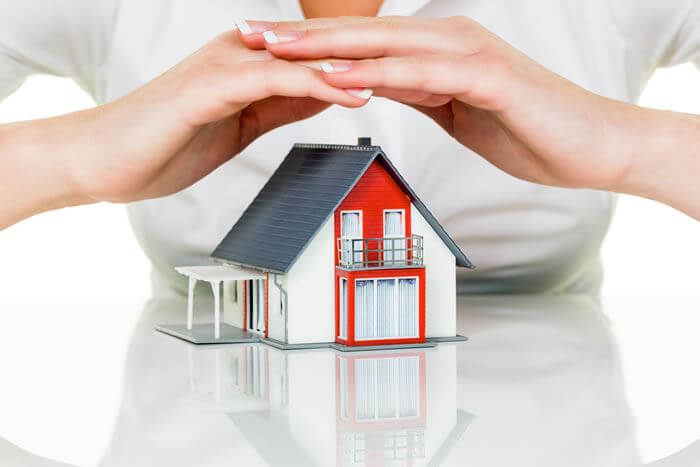6 Reasons You Need Vacant Property Insurance
Call (800) 641-7488 to speak with a live representative

6 Reasons You Need Vacant Property Insurance
It’s just an empty lot or home, right? Why would I need to insure it? Keep reading for 6 legitimate reasons to have vacant property insurance on your lot.
You may have seen horror news reports of abandoned or foreclosed homes that have been robbed of their appliances, fixtures or terribly vandalized. What the news doesn’t always show is that the homeowners that don’t have vacant property insurance are often left to pay the repair bills.
According to the latest U.S. Census statistics, there are 14 million vacant homes in the United States. If you own a property that will be left alone for a while, having vacant property insurance is something you should consider.
What defines a vacant house?
The definition varies depending on your insurance policy, but most policies define unoccupied buildings that do not contain contents as vacant properties. This means that if you relate to any of the following, your property could be considered vacant.
- You own a rental property but don’t have any current tenants
- Your house is still on the market although you’ve moved to another location
- Your property is going through renovations preventing you from living there
- You’ve hit the jackpot and are taking a 6-month backpacking trip through Europe
If you’re planning on backpacking through Europe, vacant property insurance is probably not top of mind. But before you pack your bags, you might consider calling an insurance agent after we run through 6 reasons you should consider vacant property insurance.
#1. Your Standard Homeowners Insurance Doesn’t Cut It
Right now you may be thinking, “Why do I need vacant property insurance? Isn’t that what my homeowner’s insurance is for?” Many homeowners are surprised to learn that this isn’t the case. If you leave your home for several weeks, you could be voiding your homeowner’s insurance. Typically speaking, your vacant house is covered by your standard insurance for 30 or 60 days. After that, you could be responsible for losses and damages, even those related to theft or vandalism.
The reason why most insurance companies don’t cover vacant houses is because of the liability. Since no one is maintaining and protecting the property, your unoccupied property is considered high-risk. If your homeowner’s policy doesn’t offer coverage for unoccupied or vacant homes, find one that does.
#2. Your House Is on Foreclosure
No one wants to talk about this unfortunate scenario, but if you’re losing your home through a foreclosure, you’re still responsible for insuring the property even if you’ve already moved out. Some homeowners leave their foreclosed homes in poor condition but the reality is that until you relinquish ownership, you’re still liable for damages.
Foreclosures can sit vacant for months at a time, the national average being 195 days. Homes that have been unattended and not maintained for long periods of time pose a higher risk to insurers, and therefore, a higher rate. The longer you wait to insure your foreclosed home, the more it could cost you later.
#3. You’re a Landlord
If you are lending a space out to different tenants, your property could still be considered vacant. A building is considered vacant when less than 31% of the total building square footage is not rented or leased to a tenant.
Similar to homeowners, landlords who don’t have enough tenants could be unknowingly voiding their policies after a certain period of time (usually 60-90 days). After this period, the landlord could be responsible for any of the following:
- Vandalism
- Leakage
- Glass breakage
- Water damage
- Theft
To protect yourself from costly mishaps, make sure you have sufficient loss and liability vacant property insurance on all of your properties.
#4 Your House is on the Market
Sometimes life happens and you have to leave your house and put it on the market. Selling a house is a process that can take months to close. If your former home hasn’t sold, don’t neglect to protect your investment. Your extended absence increases the likelihood of theft, vandalism, and utility-related damage. And your home insurance likely doesn’t cover it. Don’t wait until the worst happens to your vacant house for you to read the fine print on your policy. When it comes to protecting your property (or your wallet), it’s better to be safe than sorry.
#5 You “Flip” Houses
Occasionally, people may buy an empty house to fix it up and bring it back to life. This is commonly known as “flipping” and can offer a significant return on investment in the long-run. But since these homes often have been unoccupied for extended periods of time, they can quickly become victims of vandalism and robbery. If you “flip” homes, vacant property insurance is something that could prevent you from having to finance costly repairs that could throw a wrench in your home-improvement projects.
#6 You Aren’t Physically Able to Be Home
Recovery from accidents, illnesses, or medical procedures could require you to be away from home for weeks. Ask a family member to talk to your insurance company about whether or not your house is covered under your current policy and determine what arrangements need to be considered while you are away.
Reduce the Risk
We get it. Sometimes there is no reasonable way to avoid your home from being vacant. The choice you have to make is if you’re going to protect your property. Aside from getting insurance to ensure your vacant property is covered, you should always take steps to lessen your risk of running into costly issues.
- Staging your home. Even if you are not currently living in your property, it can be helpful to keep pieces of furniture in the space.
- Maintain the exterior. Keep the grass cut, windows clean, driveways shoveled, etc. Make arrangements to have the property looked at after big storms to ensure there are no stray items in the lawn.
- Install alarms. Always install alarms in your properties (vacant or not), this way you are always prepared in the case of an emergency.
- Have a support team. Find trustworthy people who will be around the area of your vacant property and ask them to keep an eye out. Having someone park a car there occasionally can also help significantly.
Vacant Property Insurance: The Bottom Line
Taking these precautions cannot always prevent the unfortunate scenarios that happen to vacant homes, but at least you know that with the right insurance policy–you’re covered either way.
A house is often the largest asset that a person has–and having a vacant home is a significant financial risk without insurance. If you have a vacant property, we can help you get a quote for a vacant property insurance policy that will keep you covered.






